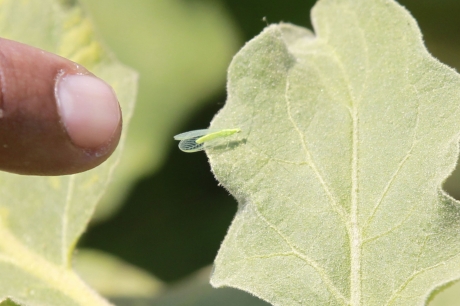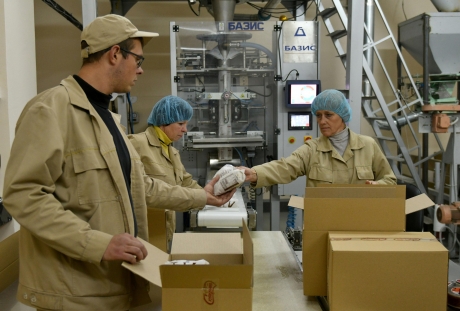May 11, 2023
People around the world have taken to e-commerce due to its convenience, particularly during the COVID-19 pandemic. However, many people may not realize that plants and regulated goods, such as agricultural products, bought or sold online may carry pests and diseases that can harm a country’s flora.
In 2021, Emily* unexpectedly received a parcel in her hometown in Christchurch, New Zealand. Her 12-year-old daughter had purchased insect eggs online without her knowledge.
“My daughter has always loved insects. She has gone through different phases of loving sea creatures, ants and various insects,” Emily shared.
“But I wasn’t expecting to receive any packages during lockdown, so I was concerned. My daughter, who dreams of becoming an entomologist, told me that she bought the insect eggs online from Portugal. She was hoping to hatch them and keep them as pets,” she added.
Cautious of the eggs’ potential risks, Emily and her husband called a friend who advised them to contact New Zealand’s Ministry for Primary Industries (MPI).
Carolyn Bleach, Manager of MPI’s Biosecurity Surveillance and Incursion Investigation Plant Health Team, said, “Once we receive a notification, we have the responsibility to contact [the notifier] within 30 minutes. We spoke to the mother and told her that we would need to remove the eggs to mitigate any risks.”
The MPI team instructed Emily to open the parcel carefully, take photos and put the parcel in the freezer overnight, then put it in her mailbox the next morning. MPI arranged for a contactless pickup by an Incursion Investigator to transport the eggs from Emily’s home to MPI’s plant health and environment laboratory to identify them and check if they posed any risks.
After running diagnostic tests, MPI identified 14 viable eggs of the Indian stick insect. While certain species of stick insects are relatively common in New Zealand, Carausius morosus, the one found in Emily’s parcel, is not present in New Zealand and importing them is not allowed, as they can harm local biodiversity.
“If it were to establish here, it might impact our local flora and displace endemic fauna but could also impact our primary industries,” Bleach said.
According to the Food and Agriculture Organization of the United Nations (FAO), New Zealand is a top producer and exporter of fresh produce such as kiwifruit, apples and avocados, with a total export value of both crop and livestock products worth USD 4.5 billion in 2021.

 Plant pests and diseases can travel across borders via air or sea in mail and courier systems. Left/top: © FAO/Khalil Mazraawi. Right/Bottom: ©FAO/Genya Savilov
Plant pests and diseases can travel across borders via air or sea in mail and courier systems. Left/top: © FAO/Khalil Mazraawi. Right/Bottom: ©FAO/Genya Savilov
Pests can be present not only in plants but also in soil from imported plants, in untreated wood packaging materials, in seeds or in articles made from lumber such as crafts, furniture and planks.
Plant pests and diseases can travel across borders through traditional mail, courier systems as well as via air or sea freight. Without a phytosanitary certificate upon importation that verifies that items are free from pests and diseases, there is a great risk that pests will enter and spread into new areas.
Once plant pests find a home in a new place, it becomes very costly and almost impossible to eradicate them. As much as 40 percent of agricultural crop yields are lost annually due to plant pests with losses of up to USD 220 billion in agricultural trade.
Protecting the world’s plants
The International Plant Protection Convention (IPPC) was established to prevent the introduction and spread of plant pests and diseases. Hosted at FAO, the IPPC is the only international treaty body created to protect plant health. Ratified by 184 countries, the convention helps prevent the introduction of harmful pests in territories, safeguard plants and facilitate safe trade by setting international standards and supporting countries to implement them.
These international standards also prevent pests and diseases from being transported across borders. The IPPC’s International Standards for Phytosanitary Measures (ISPMs) – the gold standard in plant health – assist countries in setting their national phytosanitary legislation and import requirements. These standards are guideposts for governments when implementing phytosanitary programmes and activities, ranging from pest surveillance and analyzing pest risks in an area to reporting the detection of significant pests and establishing eradication programmes.
Adopting the convention and standards not only helps simplify the safe trade of plants but also increases crop productivity, ultimately contributing to global food security. Protecting plant health also means protecting the environment and biodiversity.